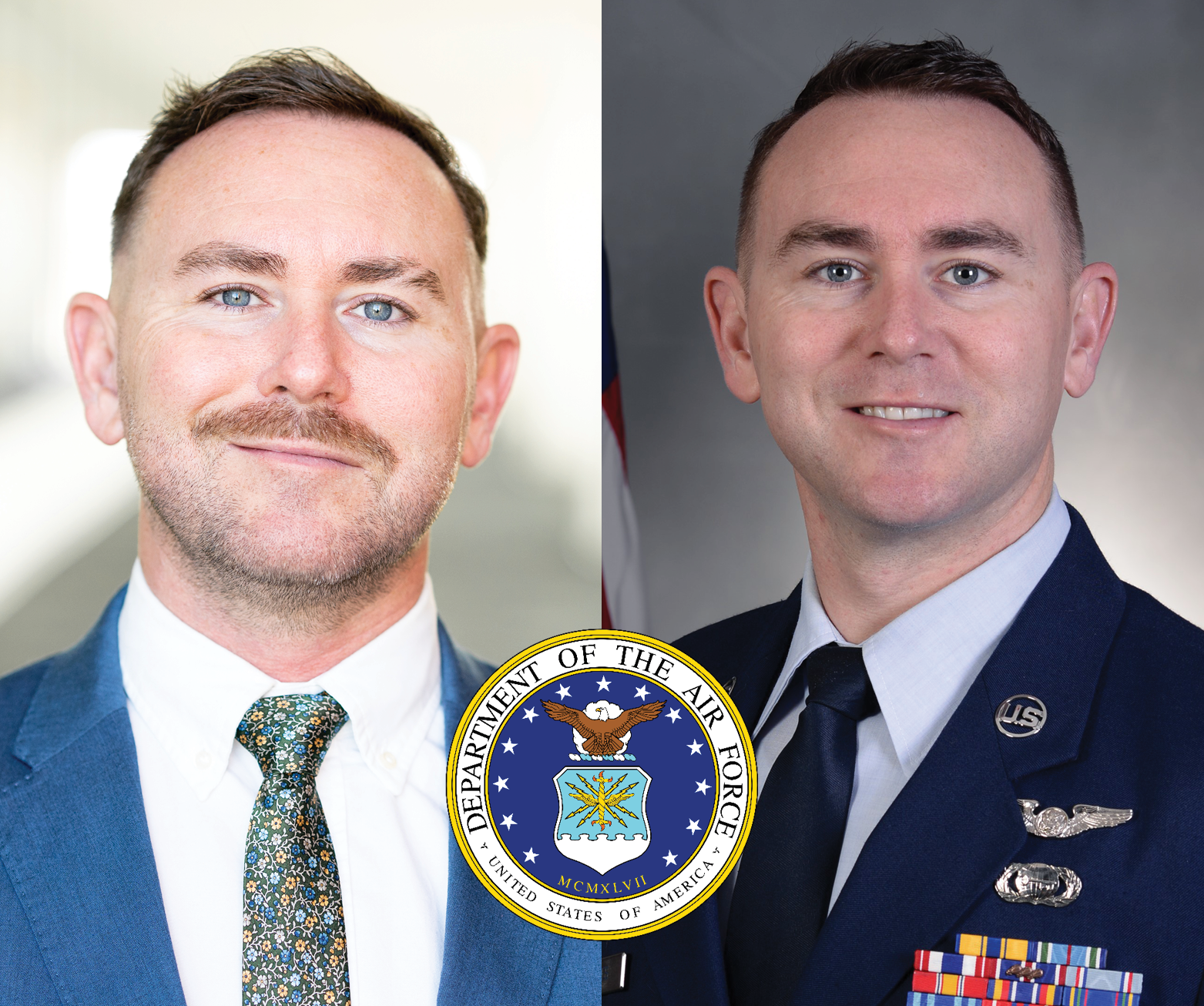Jordan Landes’ career path has been as varied as his world travels, from teaching English in China to serving in the Air Force as a Spanish Linguist, Flight Attendant, and finally in the Defense Attaché Office. His assignments have taken him from Texas and Nebraska to Afghanistan, Uganda, and Tunisia. Over the last year, though, he made one of the biggest moves of all—from Airman to civil servant. Landes now serves as an International Patent Administrative Specialist at the United States Patent and Trademark Office (USPTO) in Alexandria, Va.
DOD Skillbridge Success
Landes took advantage of the Department of Defense Skillbridge program, which allows transitioning service members to gain civilian work experience through training, apprenticeships, or internships during the last 180 days of service. Industry partners offer real-world training and work experience while having the opportunity to evaluate the service members for future potential employment. In Landes’ case, he was offered a position in the same office, International Patent Cooperation, where he interned.
The USPTO role, he says, has been a great fit due to its emphasis on international cooperation and work-life balance. He recalls his team hosting an international event earlier this year that allowed him to leverage his military background:
“I got to use my Spanish Linguist skills when speaking to some of our Spanish speaking guests, my Flight Attendant skills doing inflight event coordination and customer service, and my time in the Defense Attaché Office doing all the administrative requirements for the event. I also enjoyed that the team gave me responsibilities and trusted me to accomplish them without micromanaging. It empowered me and I felt more accomplished.”
Landes says the most difficult part of separating from the military has been missing the community.
“We all came from different places and cultures that sometimes clashed, but it was a wonderful experience in getting to learn from each other,” he says. “We were all away from home and comforts, so it strengthened our bonds.”
When most of your connections are work-related, leaving that career can create a void. Landes urges transitioning service members to network.
“Join a neighborhood group or a sports league or go to trivia, and when you get into the new job try to find clubs within that organization that you would like to be a part of,” he says. “Not only will it give you that sense of community that you had in the military, it will also help with the networking that is important for career growth.”
Veterans at the USPTO
Landes was able to find community in the USPTO Military Association, which has hundreds of members. “It is wonderful to see an agency full of veterans who seem to have similar experiences and like-minded ideas of their post-military career,” he says.
“The [USPTO] culture is self-empowering and accepting,” says Landes. “Leadership seems to believe in their people which allows them to grow and take ownership. I’ve also seen a real sense of people really accepting and desiring for diversity of people, culture, and thought. I believe that is a sign of a strong organization.”
